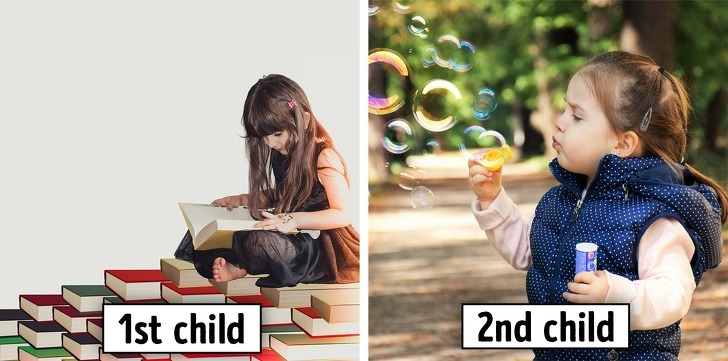The elder child is smarter than siblings-In many families, older siblings usually have exceptional intellect and talents. You can take Francis Edward Bache, Alec Baldwin, and even Dr. Spock as the perfect examples for this. According to scientists, the order of our birth and our children’s birth have a lot to do with our abilities band intelligence.
Our site is always an advocate of knowledge when it comes to a better understanding of shortcomings and talents. We are going to give you an example which will captivate your attention. Younger kids are thriving of their parents’ care because the parents effort more in succeeding their older children. So by reading the article, you will get to know the finding of the researchers in their studies related to parents attention towards their first child and second and other children.
How did we figure out this?

The study research also took place at the University of Edinburgh in the year 2017. The research studies have revealed that the reviews of IQ tests among the siblings were conducted and the results of the studies have shown that older siblings have higher levels of thinking and intelligence skills than the other siblings due to the mental stimulation of the parents.
When the emotional development test was conducted on the siblings, then scientists did not find many differences in their emotions. During their research studies, they followed around 5,000 siblings from the newborn babies to the age of 14 years. These kids and children were IQ tested every two years in a variety of ways. In each case, they found that older siblings perform better than the other siblings.
What is the “birth order effect”?

According to Meri Wallace, the order of birth of a person has an essential impact on firstborns, than those on other born. Firstborn babies are intelligent. They can struggle to be perfect with parental pressure. Secondborn kids usually have less attention from their parents. So these kids thrive on approval. Other kids even feel lonely. So that parents should spend enough time with them.
How do parents contribute?

Parents want to succeed both intellectually and emotionally with their first child. It seems like the parents are running for the sort of race to raise their kids correctly. Parents lack knowledge about raising their kids and these kids will be bombarded and will want the attention of their parents. It is because parents push their firstborns to succeed and develop intellectually.
How do siblings contribute?

The firstborns get mature faster when they become one of the kids or not remain the only child of their family. Sometimes the firstborn feels left out when his mother gives birth to a newborn baby. These firstborns then help their parents to take care of their younger siblings, and in this way, they gain the attention of their parents. In this way, the older ones become mature when they overtake their parental responsibilities.
How can you change this?

Parents’ affection and attention directly affect the academic and intellectual success of their kids. The kids lower in abilities and IQ level who do not get their parents’ interaction and whose parents spend very less time with them.
How can you apply this?

The parents can predict the outcomes for the future if they already know the flaws in their parenting skills. Moreover, parents can implement their knowledge in their everyday parenting scenarios. The parents should not start with pressuring their older kids, and they should split their attention towards their all children evenly. The parents should also make open conversations with their parental knowledge with their kids. This public conversation will help you to build thriving and beautiful relationships with their kids. It also helps in creating a solid foundation for their kids to step into their adulthood from their childhood.
Do you see any individual traits in your children or siblings? Check if you look at the results of your everyday life matching with the findings of these scientists in their research studies. You can share your views and thoughts in the below comments.



